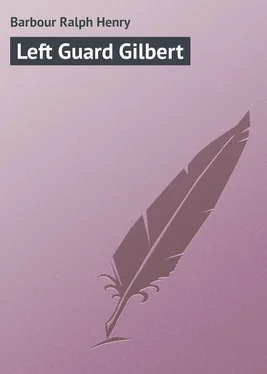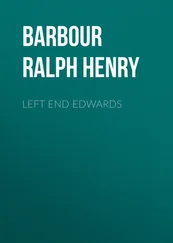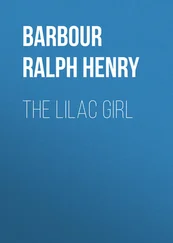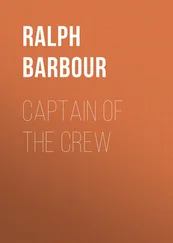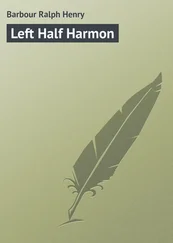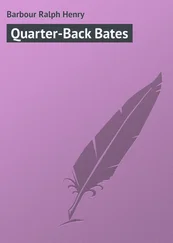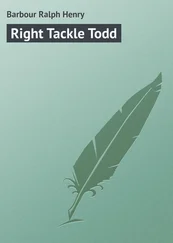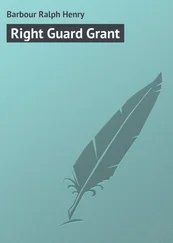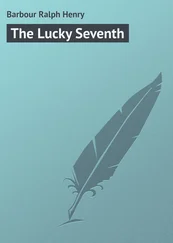Ralph Barbour - Left Guard Gilbert
Здесь есть возможность читать онлайн «Ralph Barbour - Left Guard Gilbert» — ознакомительный отрывок электронной книги совершенно бесплатно, а после прочтения отрывка купить полную версию. В некоторых случаях можно слушать аудио, скачать через торрент в формате fb2 и присутствует краткое содержание. Жанр: foreign_prose, foreign_children, foreign_language, на английском языке. Описание произведения, (предисловие) а так же отзывы посетителей доступны на портале библиотеки ЛибКат.
- Название:Left Guard Gilbert
- Автор:
- Жанр:
- Год:неизвестен
- ISBN:нет данных
- Рейтинг книги:4 / 5. Голосов: 1
-
Избранное:Добавить в избранное
- Отзывы:
-
Ваша оценка:
- 80
- 1
- 2
- 3
- 4
- 5
Left Guard Gilbert: краткое содержание, описание и аннотация
Предлагаем к чтению аннотацию, описание, краткое содержание или предисловие (зависит от того, что написал сам автор книги «Left Guard Gilbert»). Если вы не нашли необходимую информацию о книге — напишите в комментариях, мы постараемся отыскать её.
Left Guard Gilbert — читать онлайн ознакомительный отрывок
Ниже представлен текст книги, разбитый по страницам. Система сохранения места последней прочитанной страницы, позволяет с удобством читать онлайн бесплатно книгу «Left Guard Gilbert», без необходимости каждый раз заново искать на чём Вы остановились. Поставьте закладку, и сможете в любой момент перейти на страницу, на которой закончили чтение.
Интервал:
Закладка:
"No, sir, but Tim says he isn't eating in hall yet, and so – "
"Ah, in that case perhaps not. Well, be back for study hour. If you're going to supper I'll walk along with you, fellows." Mr. Daley closed his study door and they went out together and, as they trod the flags of the long walk that passed the fronts of the buildings, Mr. Daley discoursed on football with Tim while Don replied to the greetings of friends. They parted from the instructor at the dining hall door and sought their places at table, Don's arrival being greeted with acclaim by the other half-dozen occupants of the board. Once more he was obliged to give an account of himself, but this time his narrative was considered to be sadly lacking in detail and it was not until Tim had come to his assistance with a highly coloured if not exactly authentic history of the train-wreck that the audience was satisfied. Don told him he was an idiot. Tim, declining to argue the point, revenged himself by stealing a slice of Don's bread when the latter's attention was challenged by Harry Westcott at the farther end of the table.
Westcott, who was one of the editors of the school monthly, The Review , had developed the journalistic instinct to a high degree of late and had visions of a thrilling story in the November issue. But Don utterly refused to pose as a hero of any sort. The best Harry could get out of him was the that he had seen several persons removed from the wreck and had helped carry one to the relief train later. That wasn't much to go on, and, subsequently, Harry regretfully abandoned his plan.
After supper Don and Tim walked down to the village and Don had a few minutes of talk with the coach. Mr. Robey was sympathetic but annoyed. Although he didn't say so in so many words he gave Don to understand that he had failed in his duty to the school and the team in allowing himself to become concerned in a train-wreck. He didn't explain just how Don could have avoided it, and Don didn't think it worth while to inquire.
"You have that hand looked after properly and regularly, Gilbert," he said, "and watch practice until you can put on togs. Losing a week or so is going to handicap you. No doubt about that. And I'm not making any promises. But you keep your eyes open and maybe there'll be a place for you when you're ready to work. It's awfully hard luck, old chap. See you tomorrow."
Don went back to school through the warm dusk slightly cast down, although he had previously realised that football would be beyond him for at least a week. It is sometimes one thing to acknowledge a fact oneself and another to hear the same fact stated by a second person. There's a certain finality about the latter that is convincing. But if Don was downcast he didn't show it to his companion. Don had a way of concealing his emotions that Tim at once admired and resented. When Tim felt blue – which was mighty seldom – he let it be known to the whole world, and when he felt gay he was just as confiding. But Don – well, as Tim often said, he was "worse than an Indian!"
After study they sallied forth again, arm in arm, and went down the Row to Torrence and climbed the stairs to Number 14. As the door was half open knocking was a needless formality – especially as the noise within would have prevented its being heard – and so Tim pushed the portal further ajar and entered, followed by Don, on a most animated scene. Eight boys were sprawled or seated around the room, while another, a thin, tall, unkempt youth with a shock of very black hair which was always falling over his eyes and being brushed aside, was standing in a small clearing between table and windows balancing a baseball bat, surmounted by two books and a glass of water, on his chin. So interested was the audience in this startling feat that the presence of the new arrivals passed unnoted until the juggler, suddenly stepping back, allowed the law of gravity to have its way for an instant. Then his right hand caught the falling bat, the two books crashed unheeded to the floor and his left hand seized the descending tumbler. Simultaneously there was a disgruntled yelp from Jim Morton and a howl of laughter from the rest of the audience. For the juggler, while he had miraculously caught the tumbler in mid-air, had not been deft enough to keep the contents intact and about half of it had gone into the football manager's face. However, everyone there except Morton applauded enthusiastically and hilariously, and Larry Jones, sweeping his offending locks aside with the careless and impatient grace of a violin virtuoso, bowed repeatedly.
"Great stuff," approved Amory Byrd, rescuing his books from the floor. "Do it again and stand nearer Jim."
"If he does it again I'm going into the hall," said Morton disgustedly, wiping his damp countenance on the edge of Clint Thayer's bedspread. "You're a punk juggler, Larry."
"All right, you do it," was the reply. Larry proffered the bat and tumbler, but Morton waved them indignantly aside.
"I don't do monkey-tricks, thanks. Gee, my collar's sopping wet!"
"Oh, that's all right," called someone. "You'll be going to bed soon. Say, Larry, do that one with the three tennis balls."
"Isn't room enough. I know a good trick with coins, though. Any fellow got two halves?"
Groans of derision were heard and at that moment someone discovered the presence of Don and Tim and Larry's audience deserted him. When the new-comers had found accommodations, such as they were, conversation switched to the all-absorbing subject of football. Most of the fellows assembled were members of the first or second teams: Larry Jones was a substitute half; Clint Thayer was first-choice left tackle; Steve Edwards, sprawled on Clint's bed, was left end and this year's captain; the short, sturdy youth in the Morris chair was Thursby, the centre; Tom Hall, broad of shoulders, was right guard; Harry Walton, slimmer and rangier, with a rather saturnine countenance, was a substitute for that position. Jim Morton was, as we know, manager, and only Amory – or "Amy" – Byrd and Leroy Draper, the tow-headed, tip-nosed youth sharing the Morris chair with Thursby, were, in a manner of speaking, non-combatants.
But being a non-combatant didn't prevent Amy Byrd from airing his views and opinions on the subject of football, and that he was now doing. "Every year," he protested, "I have to hear the same line of talk from you chaps. It's wearying, woesomely wearying. Now, as a matter of fact, every one of you knows that we've got the average material and that we'll go ahead and turn out an average team and beat Claflin as per usual. The only chance for argument is what the score will be. You fellows like to grouse and pretend every fall that the team's shot full of holes and that the world is a dark, dreary, dismal place and that winning from Claflin is only a hectic dream. For the love of lemons, fellows, chuck the undertaker stuff and cheer up. Talk about something interesting, or, if you must talk your everlasting football, cut out the sobs!"
"Oh, dry up, Amy," said Tom Hall. "You oughtn't to be allowed to talk. Someone stuff a pillow in his mouth. No one has said we were shot full of holes, but you can't get around the fact that we've lost a lot of good players and – "
"Oh, gee, he's at it again!" wailed Amy. "Yes, Thomas darling, you've lost two fellows out of the line and two out of the backfield and there's nothing to live for and we'd better poison ourselves off before defeat and disgrace come upon us. All is lost save honour! Ah, woe is me!"
"Cut it out, Amy," begged Edwards. "You don't know anything about football, you idiot."
"Two in the line and two in the backfield is good," jeered Tim. "We've lost Blaisdell and Innes and Tyler – "
"Never was any good," interpolated Amy.
"And Roberts and Marvin – "
"Carmine's better!"
Читать дальшеИнтервал:
Закладка:
Похожие книги на «Left Guard Gilbert»
Представляем Вашему вниманию похожие книги на «Left Guard Gilbert» списком для выбора. Мы отобрали схожую по названию и смыслу литературу в надежде предоставить читателям больше вариантов отыскать новые, интересные, ещё непрочитанные произведения.
Обсуждение, отзывы о книге «Left Guard Gilbert» и просто собственные мнения читателей. Оставьте ваши комментарии, напишите, что Вы думаете о произведении, его смысле или главных героях. Укажите что конкретно понравилось, а что нет, и почему Вы так считаете.
